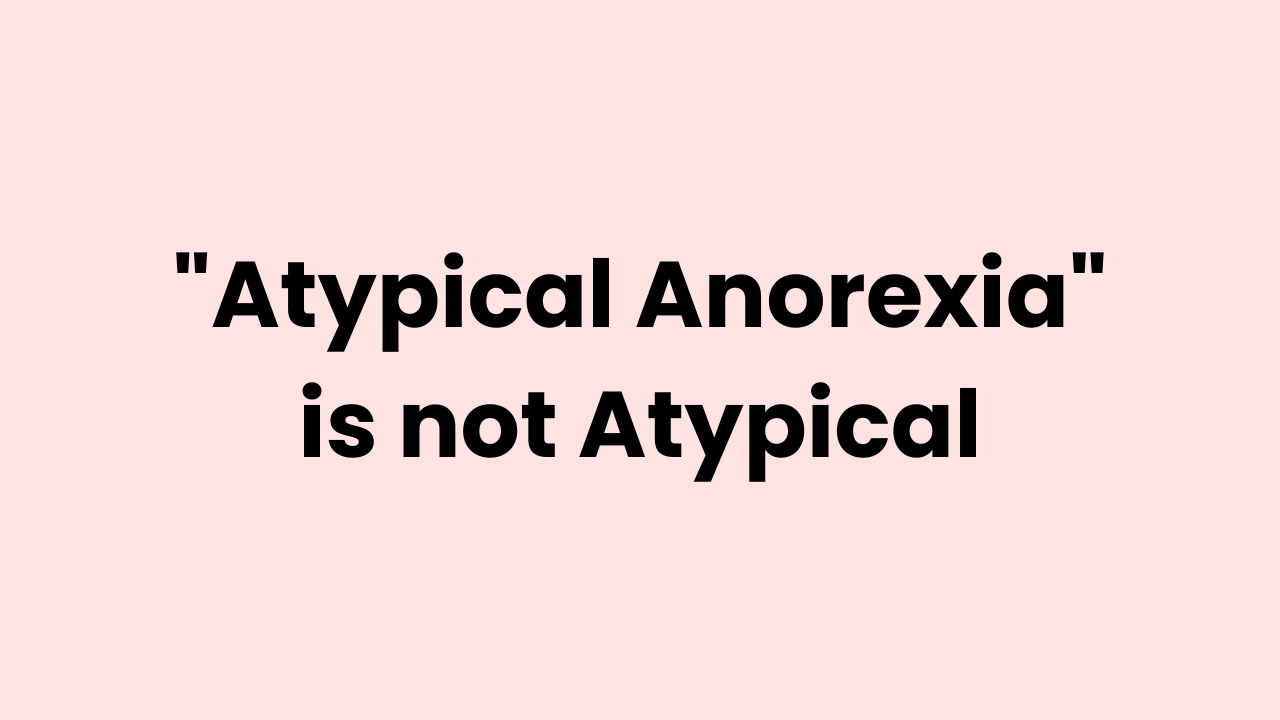"Atypical Anorexia" is not Atypical

Atypical Anorexia is an eating disorder defined as matching all of the criteria for Anorexia Nervosa without an extremely low bodyweight. Because it cannot be classified under "typical" anorexia, Atypical AN is categorized in the OSFED (Other Specified Feeding or Eating Disorders) category in the DSM-5 (Diagnostic and Statistical Manual of Mental Disorders, 5th edition).
A person dealing with atypical anorexia nervosa will exhibit the same behaviors as an individual with Anorexia Nervosa, including fear of weight gain & distorted body image, while being within or above "normal" weight range for their age, sex, etc. The presence of anorexic symptoms without an underweight BMI makes the presentation “atypical”.

Besides the fact that BMI is complete BS, the problem with this "atypical" terminology is that it's incredibly harmful to individuals dealing with atypical AN. Not only does it support the already common feeling feeling of not being "sick enough" to receive help for anorexia, but it's also MUCH harder for someone with atypical AN to receive help (let alone a diagnosis), due to weight stigma and the cultural belief that one can only have an ED if they are very thin.
Why Atypical Anorexia is not Atypical At All
Let's take a look at the dictionary definition of the word atypical:
not representative of an age, group, or class; out of the ordinary

If atypical anorexia really was "atypical", it would mean that MORE people with anorexia would be severely underweight than above or at a "normal" weight. However, this is NOT the case. According to an Australian study in the Journal Of Eating Disorders, Atypical Anorexia is five times more likely than "stereotypical" anorexia...and this doesn't even account for all the individuals who don't seek or receive a diagnosis due to shame and/or weight stigma!

Due to the behaviors an individual with Atypical Anorexia exhibits, they will experience the same consequences of malnutrition: hair loss, fatigue, organ damage, heart failure, dizziness, and more. Not to mention the mental hell of preoccupation with food and exercise. Eating Disorders of ANY kind are mental illnesses, not physical ones. So PLEASE, let's stop invalidating people's struggles based on their physical appearance.



